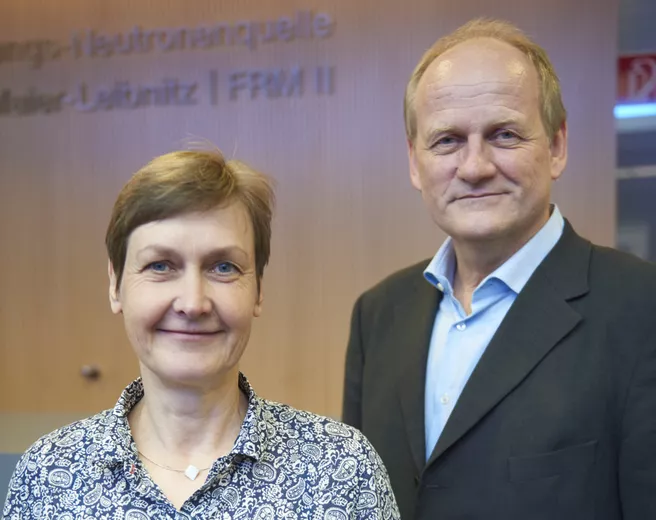On 14 September, Astrid Schneidewind (JCNS-FRM II) took up her position as the new Chair of the 11th Committee Research with Neutrons (“Komitee Forschung mit Neutronen”, KFN), the representative body of neutron users in Germany. The committee represents scientists in Germany who work with neutrons or in fields closely related to neutron research. A total of 15 candidates had put themselves forward for the position. Markus Braden (University of Cologne) is the new deputy chairman and is also responsible for Infrastructure and Instrumentation. Other areas of responsibility are represented by Regine v. Klitzing (Public Relations), Wiebke Lohstroh (ENSA), Klaudia Hradil (Digital Agenda) and Andreas Meyer (representing Germany’s involvement at the ESS).
The committee consists of seven members elected by neutron users, as well as a number of observers, made up from, for example, representatives of the centres that operate neutron sources for research, or from the project management agency responsible for research on condensed matter (PT-DESY) or the BMBF.
An important task of the committee is to ensure a continuing dialogue among neutron users and the operators of neutron sources as well as BMBF representatives and project management agencies. Moreover, in general discussions with representatives of the committees “Forschung mit Synchrotronstrahlung” (“Research with Synchrotron Radiation”) and “Forschung mit nuklearen Sonden und Ionenstrahlen” (“Research with Nuclear Probes and Ion Beams”), issues of common interest regarding the use of large-scale facilities are clarified.
The KFN is an important contact point for organizations both within Germany and abroad in terms of questions concerning research with neutrons. In addition, the KFN represents German users in the European Neutron Scattering Association (ENSA) and thus further fulfills an important task.
